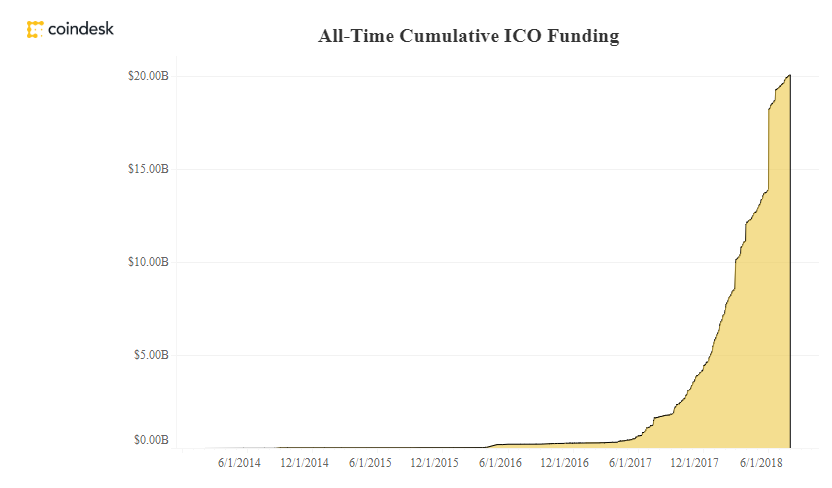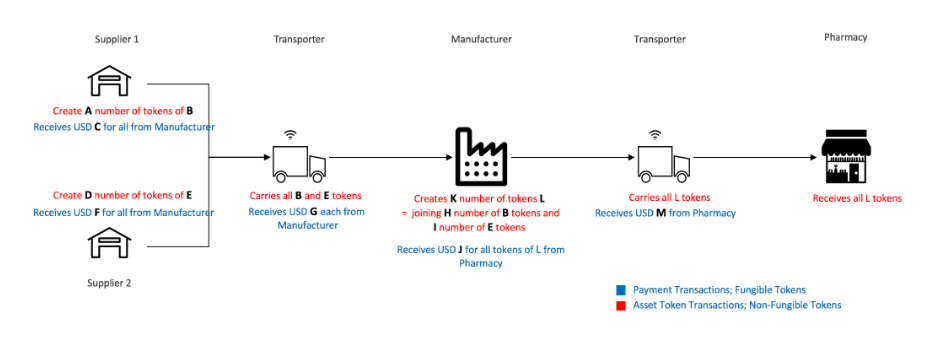The involvement of big companies in the blockchain space bodes well for the DLT. This has meant more funding & innovative ideas flowing through. China has emerged as the hub of innovation for the past decade with its supportive regulatory environment. Despite the ban on Crypto trading, the adoption of this emerging tech is gathering pace in the World’s second largest economy. The first such proposed game-changing innovation that we are going to talk about today is being released by FISCO, one of the largest Chinese blockchain consortia.
FICSO BCOS (Coinless Blockchain)
The Financial Blockchain Shenzhen Consortium (FISCO) which consists of more than 100 members including WeBank, telecom giant Huawei, tech giant Tencent & Shenzhen Securities Communication has announced the launch of its open source, permissionless & regulated blockchain platform BCOS. The image below shows the multi-level signatures employed as a security measure in BCOS.

Let’s look at some of the salient features of the platform to see why it is being dubbed as the next “Ethereum killer.”
- The coinless platform, also known as Open Consortium Chain, has similar functionality to Hyperledger’s Fabric & R3‘s Corda but where BCOS stands out is its ability to not only function as a platform but provide a whole blockchain ecosystem.
- The WeBank pioneered blockchain ecosystem can be used to build different blockchain applications on top, to solve varying problems, thus providing a wide variety of use cases.
- As mentioned before the platform is specifically built to adhere to regulatory requirements & meet the operational and servicing demands of the broader Financial Industry.
- Like any other blockchain network, special attention was paid to make the platform highly scalable – where each node is able to process an impressive 1,000 TPS (transactions per second).
- In addition, the Optimized architecture will allow the developers to upgrade the system to add additional capacity as per the business requirements & without disrupting the current system. This has been a long-standing demand of the larger financial institutions.
- For auditory purposes, BCOS has incorporated observatory nodes in the system via which the regulators can track real-time data to determine the transparency of the process.
- Special attention was also paid to the privacy of the network with Byzantine fault tolerance protocol and Zero-knowledge proof being employed to ensure added layers of security for the transactions.
Applications based on the BCOS architecture have already been applied to various sectors of the economy. With the staggering promises made it would be interesting to see how well it performs when it gets released officially during the Singapore Fintech Festival between Nov. 12-14.
RICO (Reversible ICO)
ICOs have increased in popularity multifold over the past two years becoming the main source of raising capital for new Blockchain/Crypto projects but a failure of a vast majority of these projects has cast a shadow on the process of funding projects this way. Despite this hiccup, the cumulative funding for ICOs has reached $20 billion so far. However small-scale investors have increasingly become wary of this development and want some kind of safety mechanism to protect their investment and this is exactly what was proposed by Fabian Vogelsteller, the ERC 20 standard developer at the annual Devcon conference.
Fabian proposed a “Reversible ICO” (RICO), a model which would allow the investors to redeem their investment via a smart contract. According to the developer, this would reduce the risk of scammed ICOs & increase the comfort factor for the investors knowing well that they can get their investment back at any time during the project cycle. This would also incentivize the project teams to comply with their promises. If the projects don’t work out they would follow the path of “failing naturally” without investors losing their money. The returned tokens could always be bought over by other interested investors. However, this path would make funding amounts less stable & other avenues of private funding would be needed outside the public token sale to smoothly run the project.
Vogelsteller intends to test out this new concept with the launch of new fashion design blockchain startup Lukso for which no time frame has been announced yet. Earlier this year, Vitalik Buterin had also proposed an alternative funding model called Decentralized Autonomous ICO (DAICO), which allows slow disbursement or even reimbursement of funds in case of ICO not meeting the expectation of investors. On a side note, Vogelsteller and his team of developers have proposed a new security token standard based on Ethereum network called ERC-1400, which would help businesses organize Security Token Offerings (STOs) while complying with regulations.
EY Ops Chain (Private transactions on Public Ethereum blockchain)
Ernst & Young, one of the big four auditing firms has devised a solution to carry out private transactions on Public Ethereum blockchain safely & securely using the Zero knowledge proof (ZKP) verification protocol. The innovative solution has been dubbed as EY Ops Chain Public Edition. The use of ZKP would allow the access to private transaction records of the products & tokens created on the public blockchain, since authentication using ZKP does not need the exchange of passwords. The combination of ZKP with encrypted swarm storage offers complete anonymity, security & privacy of the private transactions without disturbing the consensus algorithm of the Ethereum blockhain.
In addition, the product contains EY Blockchain Private Transaction Monitor tool which can be used for reviewing transactions history later on. Enterprise level blockchain adoption has been hindered by high costs & worries of security. Public blockchain like Ethereuem dwarfs any private blockchain network with its huge market cap while offering security and liquidity. This innovative solution provides the best of both worlds. EY intends to collect feedback from users from the use of this prototype to further improve the weaknesses & deficiencies in the system. They are planning to add KYC & auditing tools while working on the scalability issues as they moved towards offering the alpha version by the end of this year followed by a mass production offering sometimes in 2019. Details on the prototype could be found here.
eTrade Connect (Trade finance platform)
And before I sign off, an honorable mention of a trade finance platform – eTrade Connect – developed by a dozen of multinational banks like ANZ, BNP Paribas, HSBC & Shanghai Commercial bank among a host of others. The development was facilitated by the Hong Kong Monetary Authority (HKMA). Trade finance transactions accounted for more than $9 trillion in 2017, but the industry is still using the decades-old paper-based cumbersome system. The platform has already reduced the time it takes to approve a trade loan application from previous 36 hours to just 4 hours. The platform would be automating & digitizing all the processes, streamlining the interactions between trading parties & mitigating the risks of fraud in the transactions and issuance of Letters of Credit (LoC) and other documents.
While 2017 was the year of excitement & Euphoria, 2018 has proved to be a maturing time for the new technology with the proposal of innovated new use cases. I have a strong feeling 2019 would be the take off year with all these test cases transitioning from prototypes to widespread implementation.
Stay in touch: Twitter | LinkedIn | Tradealike | StockTwits | Telegram



